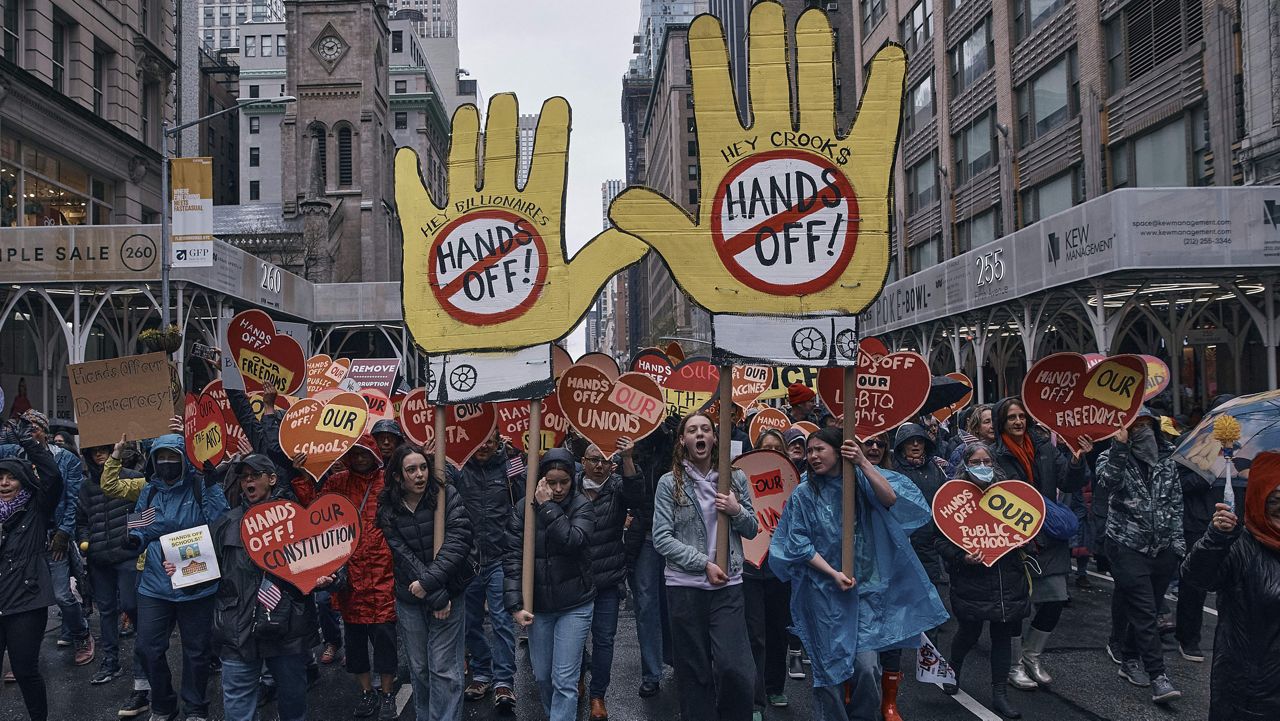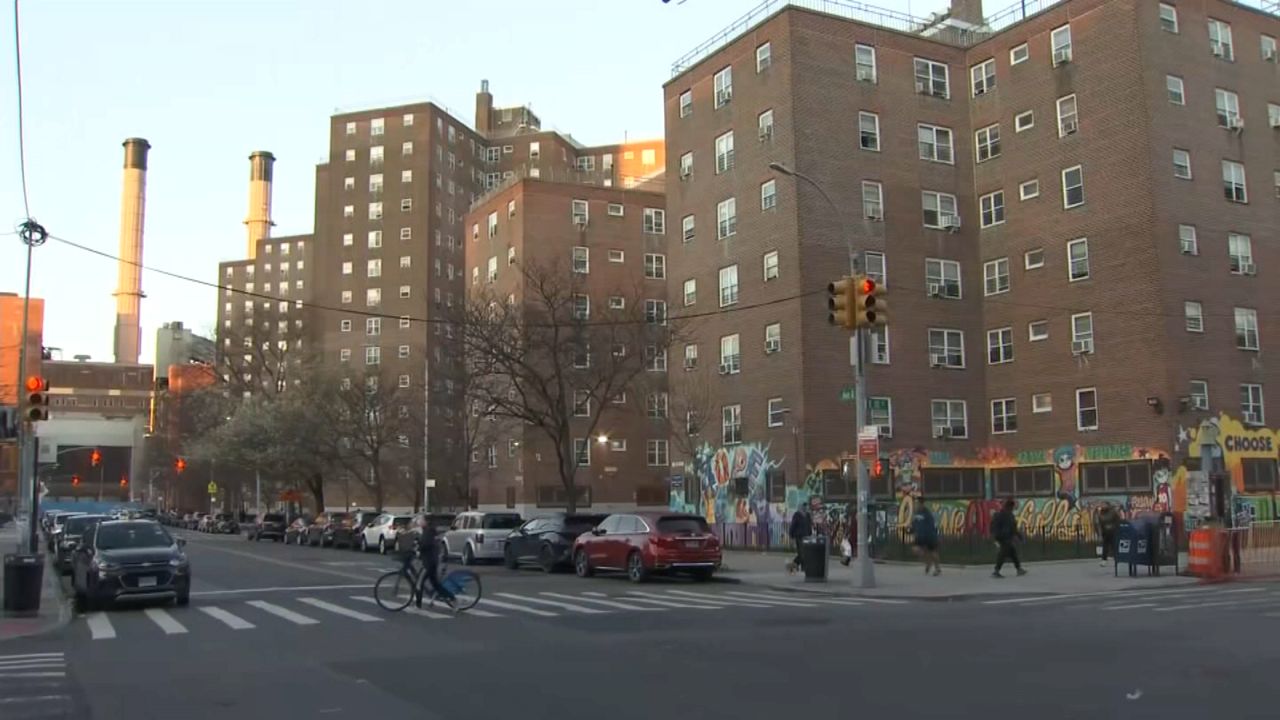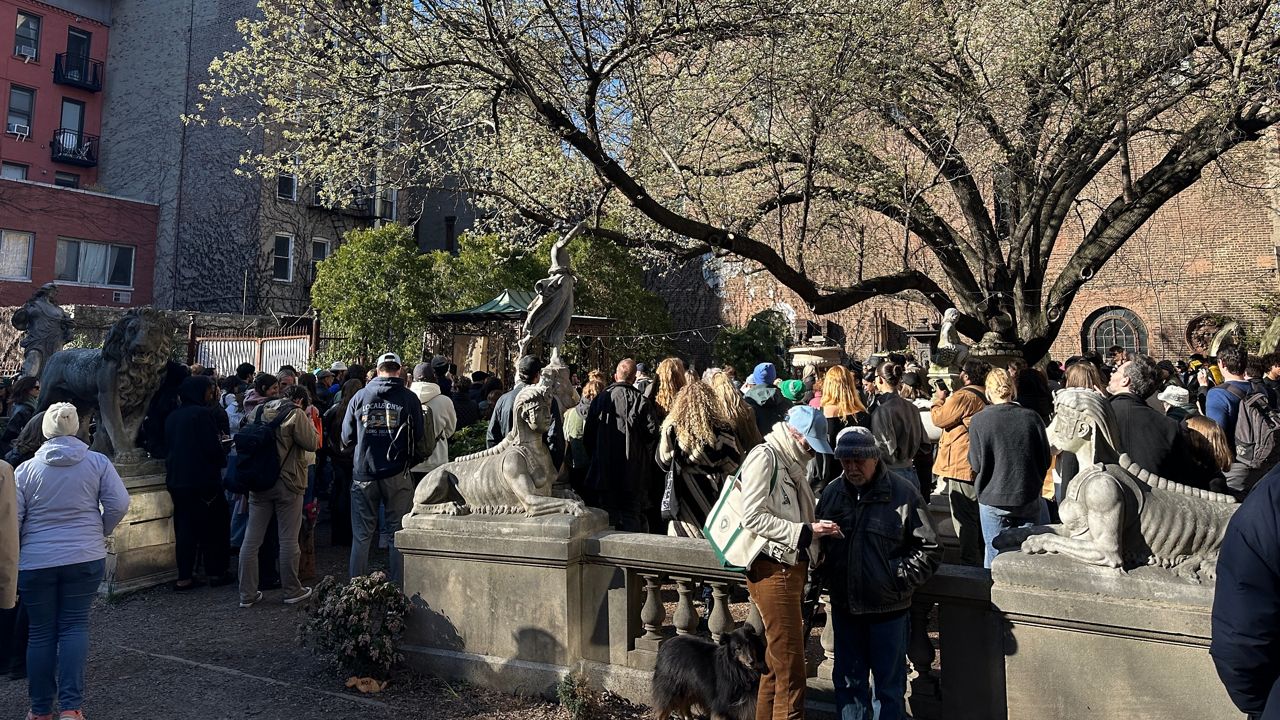A grim milestone as six months of the Israel-Hamas war was marked Sunday, with seemingly no end in sight.
In Gaza, at least 33,000 Palestinians have been killed, according to the Gazan-run Health Ministry. More than 100 hostages are still being held captive by Hamas.
Israel’s military campaign was launched after Hamas’ Oct. 7 attack left 1,200 Israelis killed. More than 250 people were taken hostage after the attack.
Some hostages were released during a temporary ceasefire in November. Some New Yorkers expressed their emotions, saying it’s been a difficult day for them.
“It’s very upsetting. I’m going to synagogue now. It feels good to be in my synagogue, but the stories I’m hearing from Israel are so traumatic,” said Seth K., a worshipper heading into the Park East Synagogue for morning prayer, who only wanted us to use his first name. “It is having an effect [on me] and it’s really upsetting to see what our world has come to right now.”
“Obviously, I am a little depressed about how things have played out. I have family in Israel,” Yehuda Jian, who was also on his way to pray at Park East Synagogue, said. “Our entire people, all Jewish people, all over America and the rest of the world, are heartbroken that this is still happening.”
Thousands of Israelis are taking to the streets in Tel Aviv, in anti-government protests, to demand another cease-fire, to release the remaining hostages and to hold an early election.
Frustrations are not only mounting in Israel but globally, including here in the U.S. after seven aid workers with World Central Kitchen were killed by the Israeli military in Gaza. President Biden said last week that the U.S. would reassess its policy on the war in Gaza, if Israel doesn’t take immediate steps to address the humanitarian crisis there and protect aid workers.
More than 80% of Gazans are displaced, and over 1 million Palestinians are on the brink of starvation. The United Nations continues to sound the alarm about Gaza’s humanitarian crisis.
“Regarding Al Shifa hospital, the WHO team spoke with patients who were able to leave the hospital following the latest military operation at the facility. They describe dire conditions during the siege with no food, water or medicine available. One patient said that doctors there have resorted to putting salt and vinegar in peoples’ wounds in place of antiseptics, which are nonexistent,” Stéphane Dujarric, spokesperson for the UN Secretary-General, said.
“The humanitarian crisis is horrible. I mean, no one [who is] serious questions that Palestinians are suffering,” Jian said. “They’re doing the best they can. I absolutely abhor any violence that comes to civilians, but in war, this is what happens.”
“It makes me really sad. It’s Ramadan, it’s all about the forgiveness, giving, living in peace, that’s what we all wish for everybody to have. But unfortunately our people in Gaza, they are missing all of that, they are living under bombs, they are living under fear, no water, no food,” Khadija Haman, who is of Moroccan descent, said. “My call is to Mr. Biden, the President of the United States, who is responsible, number one, for stopping the war. If he said stop the war, the war will stop next day, unfortunately he’s not doing that.”
High emotions this Ramadan for Muslim New Yorkers who want to see a permanent cease-fire.
Jewish New Yorkers are also feeling anguish as they pray for the families of the hostages still held by Hamas. They said they want their loved ones brought back home.
On Capitol Hill, the House is set to vote on a resolution that would support Israel’s right to self-defense — opposing a cease-fire in Israel’s war against Hamas in Gaza. However, this Republican-led resolution is purely symbolic and would not change any current policy.





_PKG_NYU_Prayer_Room_Vandalized_CLEAN)

